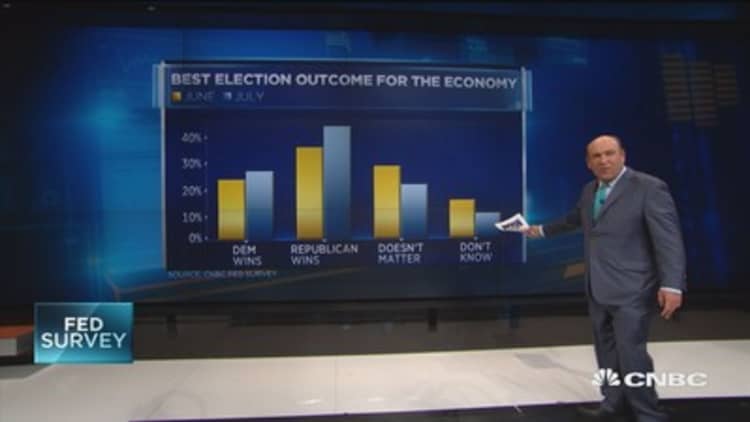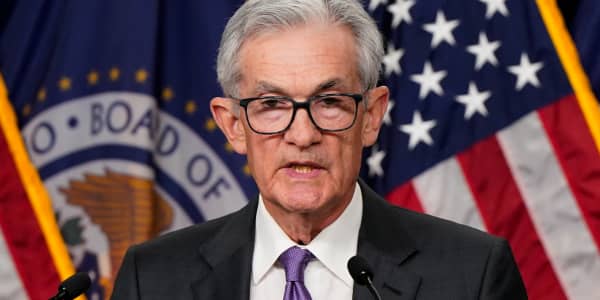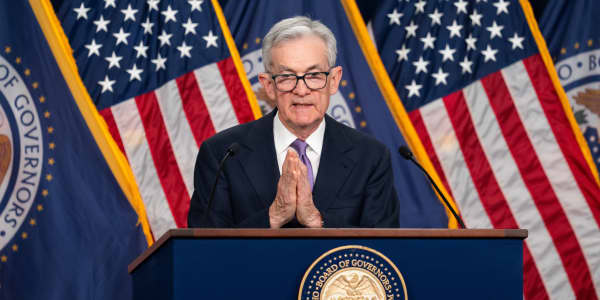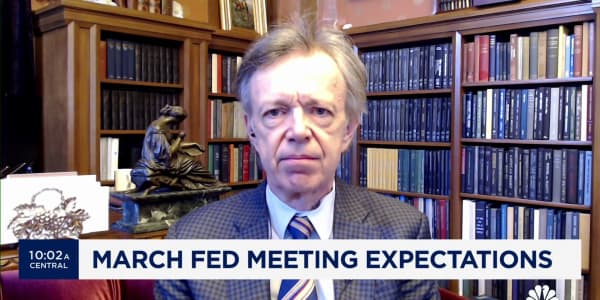
Wall Street is now substantially less certain of a Hillary Clinton victory than it was just a month ago.
In the wake of the Republican National Convention and continued damage to Clinton's reputation from the email scandal, just 52 percent of respondents to the July CNBC Fed Survey now believe the Democratic nominee will prevail in November, a sharp drop from 80 percent in the April and June surveys.
The survey of the 43 economists, fund managers and analysts, while not a scientific public opinion poll, mirror other polls showing a tighter race.
Still, respondents see Donald Trump's victory as a long shot, with just 26 percent saying he is likely to win the White House. Instead, there was a large increase, to 21 percent from 5 percent in July, in the percent saying they don't know who will win in November.
The survey was conducted Thursday and Friday, the last day of and the day after Trump's acceptance speech at the Republican National Convention and before the Democratic National Convention.
There's a curious split among respondents over which candidate is best for stocks and which is best for the economy.
A 44 percent plurality continues to see Trump's policies as best for the economy, virtually unchanged from last month. But for the second survey in a row, Clinton's policies are seen as best for the stock market by 38 percent to 31 percent margin. The Republican nominee gained 6 percentage points on the issue, with his support coming from a decrease among those saying they "don't know."
Fewer respondents now are also unsure about which party winning the White House is best for the economy. Forty-three percent now say the best outcome is a victory by a Republican candidate, up from 35 percent in June. There was a slight gain among those who say it's best if a Democrat wins, to 26 percent from 23 percent. The combination of those saying they are unsure or it doesn't matter fell to 31 percent from 43 percent.
The survey suggests at least some on Wall Street are likely hedging their bets on whatever the pros and cons will be of a Trump presidency. At the same time, it does appear that support for the Republican candidate remains low among this group, given that many on Wall Street skew more toward Republican free market ideas and less toward government intervention and programs.
In September 2012, the CNBC Fed Survey found that 53 percent of respondents wanted Republican nominee Mitt Romney to win, compared with just 18 percent who favored President Barack Obama.





